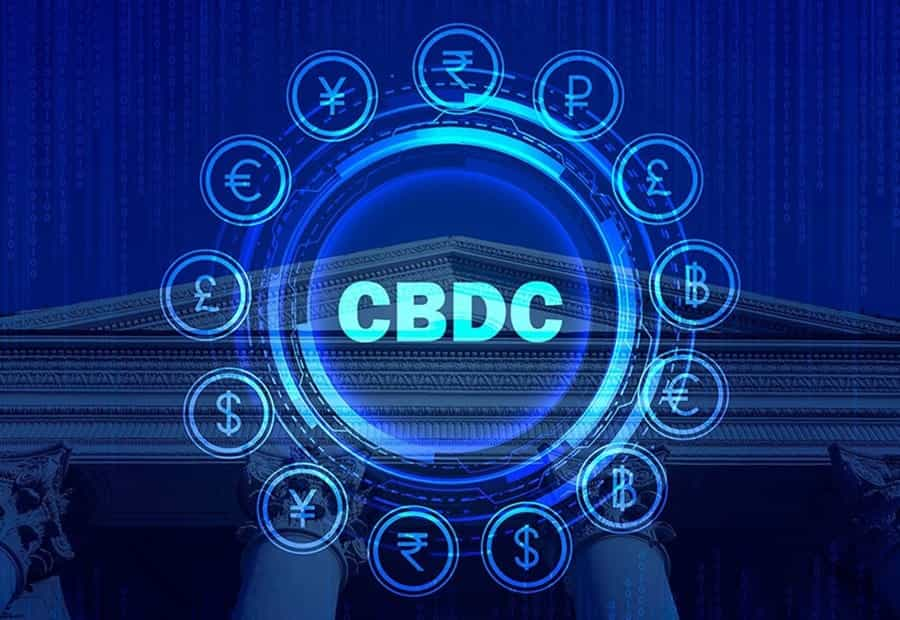Central Bank Digital Currencies (CBDCs) and their Potential Role in Reshaping the Global Financial System
Introduction
A central bank digital currency (CBDC) is a digital or virtual currency that is issued by a central bank and is legal tender. CBDCs are not backed by physical assets, such as gold or silver, but are instead backed by the full faith and credit of the issuing central bank.
CBDCs have the potential to reshape the global financial system in a number of ways. For example, they could make it easier and cheaper for people to make payments, they could help to reduce financial crime, and they could provide a more stable and secure form of money.
Perspectives
In the article "Central Bank Digital Currencies (CBDC): A Potential Push Toward Socialism?" by Parker Press.
The article argues that CBDCs could lead to a more socialist society. The author argues that CBDCs would give central banks more control over the money supply and could be used to track and control people's spending. The author also argues that CBDCs could be used to implement negative interest rates, which would discourage saving and encourage spending.
The author's arguments are based on the assumption that central banks would use CBDCs in a way that is harmful to individual freedom. However, it is also possible that central banks would use CBDCs in a way that is beneficial to individual freedom. For example, CBDCs could be used to make it easier for people to make payments and to reduce the cost of financial transactions.
Ultimately, the impact of CBDCs on society will depend on how they are designed and implemented. If CBDCs are designed in a way that gives central banks too much control over the money supply, they could lead to a more socialist society. However, if CBDCs are designed in a way that protects individual freedom, they could have a positive impact on society.
Here are some of the pros and cons of CBDCs mentioned in the article:
Pros
- CBDCs could make it easier and cheaper for people to make payments.
- CBDCs could help to reduce financial crime.
- CBDCs could provide a more stable and secure form of money.
Cons
- CBDCs could give central banks too much control over the money supply.
- CBDCs could be used to track and control people's spending.
- CBDCs could be used to implement negative interest rates.
CBDCs have the potential to reshape the global financial system in a number of ways. However, there are also a number of challenges associated with CBDCs. The design, implementation, and acceptance of CBDCs will all be important factors in determining the impact that they have on the global financial system.
On a recent podcast held by Whitney Webb at her site Unlimited Hangout titled "The Bitcoin Dollar & Crypto-Colonialism with Mark Goodwin"
The episode features an interview between Max Blumenthal and Mark Goodwin, a researcher and writer who has been studying the intersection of cryptocurrency and colonialism.
Goodwin begins by discussing the history of cryptocurrency, which he argues is rooted in the early days of the internet when there was a belief that the internet would lead to a more decentralized and egalitarian world. However, Goodwin argues that this vision has not been realized, and that instead, cryptocurrency has become a tool for the wealthy and powerful to further their own interests.
Goodwin then goes on to discuss the potential for cryptocurrency to be used for crypto-colonialism, which he defines as the use of cryptocurrency to exploit and extract resources from developing countries. Goodwin argues that this is already happening in a number of ways, including through the use of cryptocurrency mining to consume vast amounts of energy in developing countries, and through the use of cryptocurrency to launder money and finance criminal activity.
Goodwin concludes by arguing that we need to be very careful about the potential for cryptocurrency to be used for crypto-colonialism. He argues that we need to develop regulations that will prevent cryptocurrency from being used for harmful purposes, and that we need to educate people about the potential risks of cryptocurrency.
Opinion
Central bank digital currencies (CBDCs) have the potential to revolutionize the global financial system. They could make it easier and cheaper for people to make payments, they could help to reduce financial crime, and they could provide a more stable and secure form of money.
However, there are also a number of challenges associated with CBDCs. These include:
- Privacy: CBDCs could be used to track and monitor people's spending habits. This could be a concern for people who value their privacy.
- Security: CBDCs could be vulnerable to cyberattacks. This could lead to financial losses for individuals and businesses.
- Acceptance: People may be reluctant to adopt CBDCs if they are not familiar with them or if they do not trust them.
Closing
The future of CBDCs is uncertain. However, the potential benefits and challenges of CBDCs are significant and warrant further research and discussion.
I believe that CBDCs have the potential to make the global financial system more efficient, secure, and inclusive. However, it is important to address the privacy, security, and acceptance challenges before CBDCs can be widely adopted.
Resources
- Books:
- The Future of Money by Paul Vigna and Michael Casey
- Central Bank Digital Currencies by Agustin Carstens, Andrew Levin, and Michael Kumhof
- Articles:
- "Central Bank Digital Currencies: A Primer" by the Bank for International Settlements
- "The Potential Impact of Central Bank Digital Currencies on Financial Markets" by the International Monetary Fund
- "CBDCs: The Next Frontier in Money" by the Atlantic Council
- Experts:
- Agustin Carstens, General Manager of the Bank for International Settlements
- Andrew Levin, Professor of Economics at the University of Minnesota
- Michael Kumhof, Economist at the International Monetary Fund
- News Articles:
- "China Launches Digital Yuan Pilot Program" by The Wall Street Journal
- "Sweden Launches e-Krona Pilot Program" by Reuters
- "Japan to Launch CBDC Trial in 2022" by Bloomberg
In addition to the resources listed above, there are a number of other factors that could impact the future of CBDCs. These include:
- The development of new technologies, such as blockchain and quantum computing.
- The evolution of the global financial system.
- The response of the public to CBDCs.
It is important to note that the future of CBDs is uncertain. However, the potential benefits and challenges of CBDCs are significant and warrant further research and discussion.




Comments
Post a Comment
Thank you for your comments and ideas.